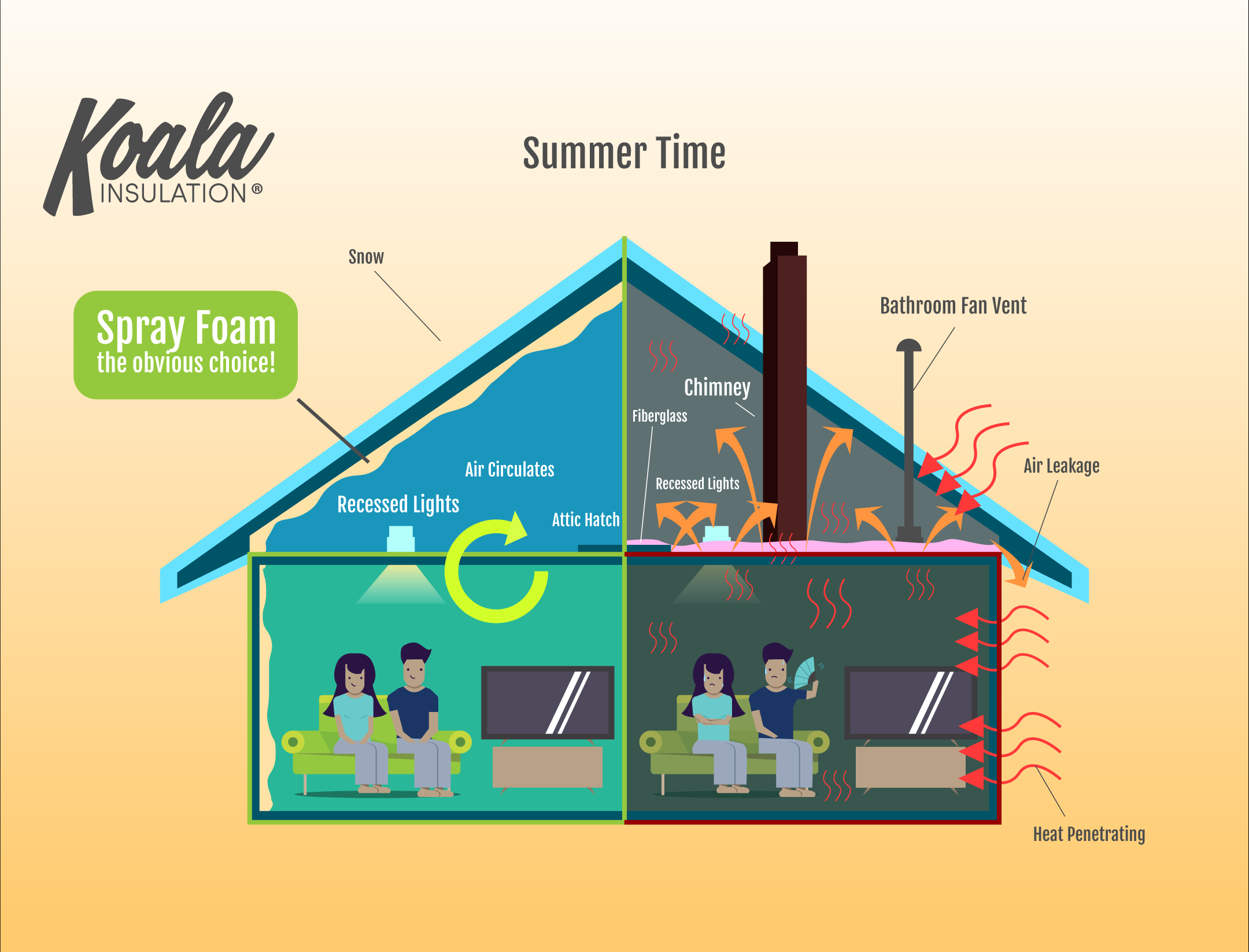Index Surge: Amplifying Your Insights
Stay updated with the latest trends and news across various industries.
Insulation: The Invisible Shield Against Energy Bills
Maximize comfort and slash energy bills! Discover how insulation acts as your home's invisible shield for savings and efficiency.
How Insulation Works: Understanding the Science Behind Energy Efficiency
Insulation is a critical component in achieving energy efficiency in buildings, as it helps to regulate the temperature within a space by reducing heat transfer. The science behind insulation lies in its ability to resist conductive, convective, and radiant heat transfer. When heat flows from warm areas to cooler ones, insulation materials, such as fiberglass, foam, or cellulose, act as barriers. By limiting this transfer, insulation keeps homes warmer in the winter and cooler in the summer, which ultimately leads to reduced energy costs and a lower carbon footprint.
There are several types of insulation, each with unique properties and applications. For instance, fiberglass insulation is popular for its affordability and effectiveness, often found in batt or roll forms, while spray foam insulation provides a superior air seal and is ideal for irregular spaces. Understanding the R-value, which measures the effectiveness of insulation, is also essential for homeowners and builders alike. The higher the R-value, the better the insulation's ability to resist heat flow. Thus, investing in the right insulation type and ensuring proper installation can significantly enhance energy efficiency and overall comfort in any building.

Top 5 Benefits of Proper Insulation for Your Home
Proper insulation is a cornerstone of energy efficiency in any home. One of the most significant benefits is its ability to reduce energy bills. By minimizing the amount of heat loss during winter and heat gain in summer, homeowners can significantly lower their heating and cooling expenses. In fact, well-insulated homes can save up to 20% on their energy costs annually, making insulation a smart financial investment.
Moreover, a properly insulated home provides enhanced comfort throughout the year. Insulation helps maintain a consistent indoor temperature, eliminating cold drafts in winter and keeping the heat out during summer. This not only contributes to a more enjoyable living environment but also reduces the strain on your HVAC system. As a result, it can lead to longer lifespan for your heating and cooling units, further enhancing your home's overall efficiency.
Is Your Home Costing You Money? Signs You Need Better Insulation
Are you tired of skyrocketing energy bills every month? Insufficient insulation can lead to significant heat loss in your home, causing your heating system to work overtime. Here are some tell-tale signs that your home may be costing you money due to inadequate insulation:
- Drafts or cold spots in your home
- Unnecessarily high energy bills
- Ice dams forming on your roof during winter
- Uneven temperatures between rooms
Improving your home’s insulation can enhance comfort and save money in the long run. If you notice any of the signs mentioned above, it’s time to act. Conduct a thorough inspection of your attic, walls, and basement to identify areas that need attention. Investing in better insulation not only increases your home’s energy efficiency but also adds value to your property. Don’t let your home cost you money—take action to ensure it stays energy-efficient and comfortable year-round.